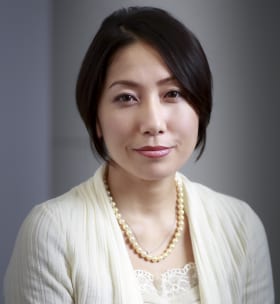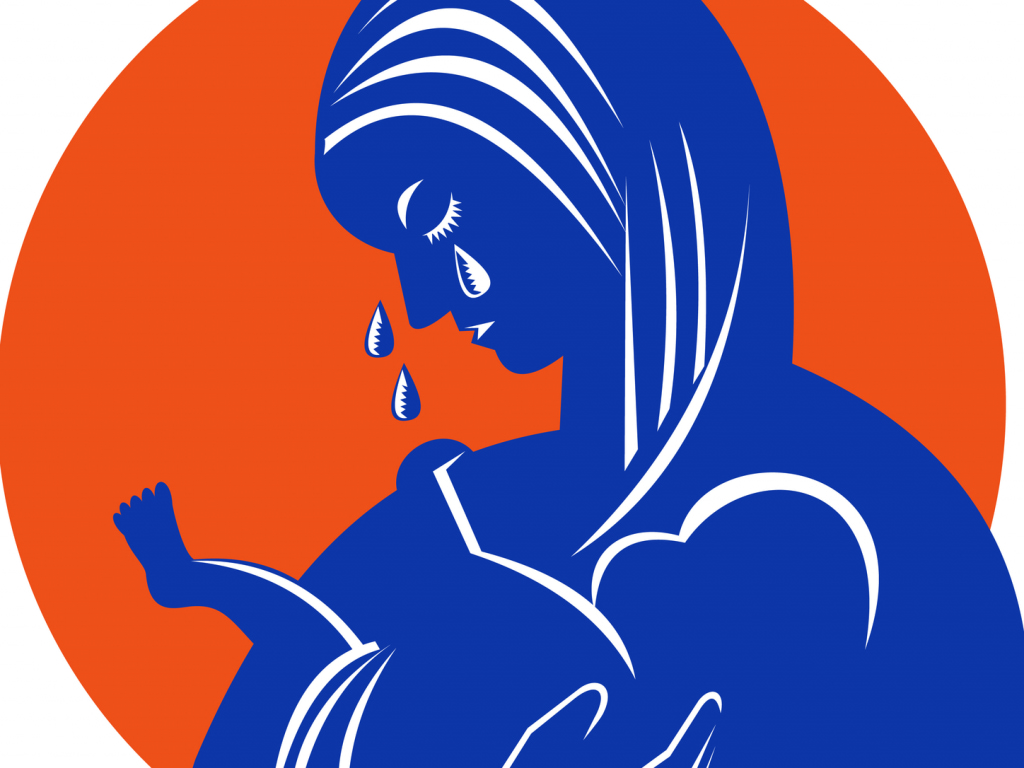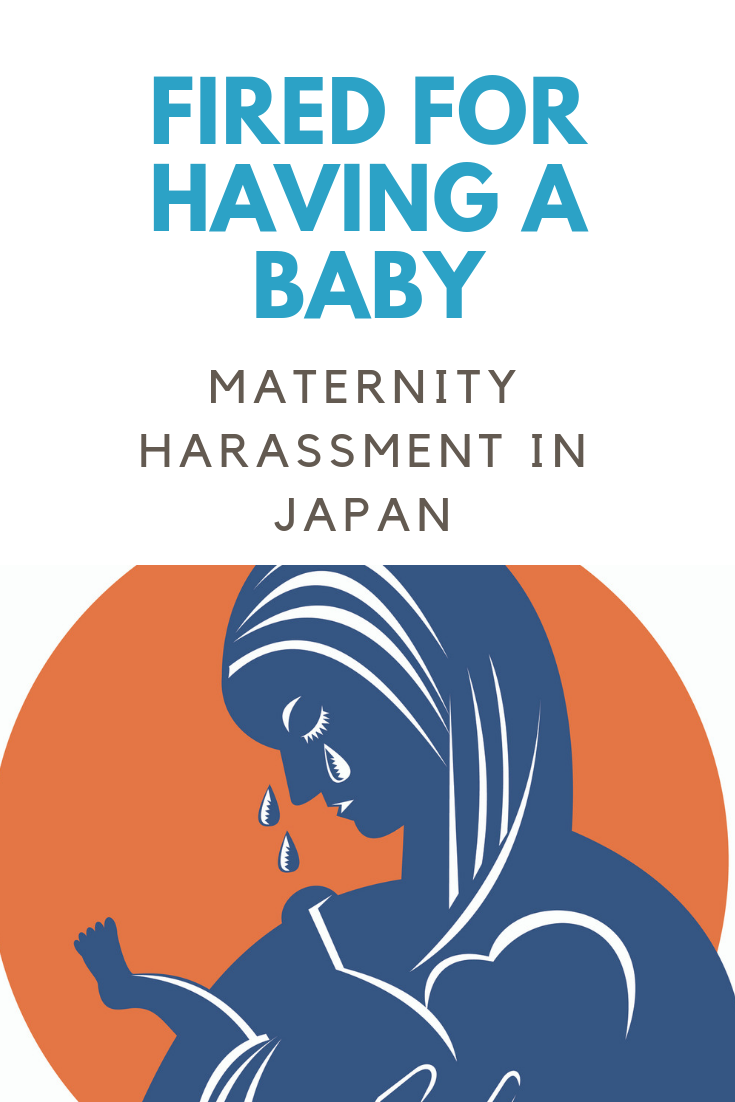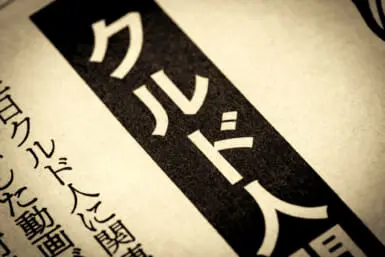Hiroko Miyashita never intended to quit her job after falling pregnant with her second baby. She was enjoying her work as a sales representative and didn’t expect that having children would affect her position. But after consulting with a doctor and being warned about the possibility of a miscarriage, she decided to ask her employer for some time off. And that’s when things started to turn sour. Her boss showed her little sympathy, not only turning down her request, but also giving Miyashita her marching orders.

Hiroko Miyashita
“It was something I couldn’t accept,” Miyashita tells TW. “I was overjoyed at the prospect of another baby, yet such an upsetting situation severely tempered that happiness. I consulted with various law firms and eventually got some form of justice as my demands were met.”
Naomi Sekiguchi* tells a similar story. She was also dismissed for getting pregnant, though she received the news only after giving birth. “I was planning to return to work following childcare leave, then the company told me they couldn’t employ me any more,” she says. “I objected several times before they confirmed my dismissal. I consulted with the labor office who ended up siding with my employers.”
Although financially compensated, Sekiguchi was extremely frustrated at the way she was treated, and eager to help those who’d been put in a similar position. She joined Miyashita in working as a volunteer at Matahara Net, an organization advising women who’ve suffered from maternity harassment. The group’s website states that discrimination against pregnant women and mothers can generally be divided into four categories: gender values imposed on individuals, bullying, power harassment, and staff being forced out.
“We receive around 10 to 15 e-mails monthly,” says executive officer Miyashita. “The numbers tend to increase in months when contract renewals typically take place and bonuses are due. We sometimes hold sessions to meet victims and we’re constantly lobbying local governments and companies demanding change.”
When she became pregnant again her boss advised her to quit as she was causing trouble for the company. Defiantly, she carried on working but once again miscarried
Matahara Net was established in 2014 by Sayaka Osakabe, also a victim of maternity harassment. Following a miscarriage, she returned to her job at a PR magazine and was regularly doing overtime. The then 35-year-old was hoping for some assistance to lighten the load, so she wouldn’t miscarry again, yet instead was told by her superior to forget about having a baby for another two to three years. When she became pregnant again her boss advised her to quit as she was causing trouble for the company. Defiantly, she carried on working but once again miscarried.

Sayaka Osakabe
Osakabe then quit and took her case to a labor tribunal. She won and soon became the leading spokeswoman on the issue of maternity harassment, meeting with many influential figures, including Prime Minister Shinzo Abe. In 2016 Osakabe, who had won the US State Department’s International Women of Courage Award a year earlier, parted ways with Matahara Net, though continues to campaign for the cause as CEO of Natural Rights.
“In 2014, when Matahara Net was launched, there was very little about maternity harassment on the Internet,” recalls Osakabe. “People hadn’t heard of the phrase matahara [a portmanteau of maternity and harassment] so my initial aim was to raise awareness and connect people who’d been affected. NHK did a feature on maternity harassment and interest from abroad grew. Matahara became one of 2014’s buzzwords.”
That same year the supreme court ruled in favor of a rehabilitation therapist who’d been demoted from her managerial position at a hospital in Hiroshima. After requesting less demanding work during pregnancy, as was her right under the Labor Standards Act, she then sued the hospital when they failed to reinstate her as a manager. The unnamed woman reportedly received ¥1.75 million in damages despite her claims originally being rejected by the Hiroshima district and high courts.
Knowing matahara is illegal has helped to change attitudes at companies which is wonderful
“It was hugely significant ruling,” opines Miyashita. “Knowing matahara is illegal has helped to change attitudes at companies which is wonderful. That said, many organizations aren’t punished enough when they mistreat workers and, therefore, still fail to adhere to the laws of the land because they know they’ll only get a slap on the wrists.”
The problems sometimes occur even before pregnancy. Last year, a female employee at a cosmetics company told the Mainichi Shimbun that a document detailing childbirth schedules had been circulated among 22 colleagues via e-mail. “Selfish behavior,” the employees were warned “would be punished.” The woman was also strongly advised not to get pregnant until the age of 35 by a female supervisor.
It’s what Osakabe calls “pre-matahara” and is more common than you might think as workers in some establishments are expected to comply with pregnancy orders. A few months ago, one man revealed to the Mainichi Shimbun that his wife had been reprimanded at a private childcare center for getting pregnant “before her turn.”
“It’s an infringement of the right to self-determination,” says Osakabe. “Of course, it can upset the balance at a company when people ask for leave, but we’re not machines. You can’t just flick a switch and say I’ll get pregnant at that time. Giving birth is an amazing thing that’s celebrated in warm societies. If we can’t do that, then our population will continue to shrink.”
It’s Not Just Women Who Are Victimized
Canadian Glen Wood was incrementally demoted and later fired from his job as equity manager at Mitsubishi UFJ Morgan Stanley Securities after requesting paternity leave. Wood, who’s taken legal action against his former employers, told TW he was treated like an outcast by bosses who stopped inviting him to meetings and wouldn’t look him in the eye.
“It felt like I was back at school,” says Wood. “My son was due to be born in Nepal, so I needed time off to go out there, and to get his Japanese passport. I was careful not to upset things at work because I knew managers and HR could be sensitive about this issue. At the same time, I thought they might be happy for me. I was wrong. My application for leave was turned down even when he was born six weeks prematurely and I was frantically worrying about his survival.”
Just 5.14 percent of male workers took childcare leave in the year leading up to October 2017
While, ironically, Japan has one of the world’s most liberal paternity leave laws – men, like women, are entitled to 12 months off, generally at about 60 percent of their salary – it was revealed in a labor ministry survey that just 5.14 percent of male workers took childcare leave in the year leading up to October 2017. It’s the first time the figure has exceeded five percent yet it’s still well short of the government’s target of 13 percent by 2020.
According to a study by Kyushu University, this reluctance to take time off is due to a psychological phenomenon known as “pluralistic ignorance.” Men wrongly believe other workers view paternity leave unfavorably so choose not to rock the boat. Wood agrees with this assessment, however also feels that old-fashioned attitudes at major corporations and stereotypical gender divisions are also major factors.

Glen Wood with his son
“Women take care of the household and men are slaves to the company. That’s still the way roles are generally defined here,” he says. “You join a firm and are expected to become a soldier that falls into line. If you don’t you’re ostracized and forced out. And you often find the bigger the company the more likely they are to violate basic human rights.”
Wood took a DNA test to prove he was the father, and his application for leave was eventually accepted by Mitsubishi two months after the birth of his child. When he returned from Nepal, though, his job had been given to someone else. Stripped of managerial responsibilities and forced to do menial tasks, the situation affected his health. After taking sick leave, the company offered him a new contract with a significant pay decrease which he rejected. Once payment stopped, Wood spoke to the press and was subsequently fired.
In an e-mail to the National Post, a Mitsubishi spokesperson said the company had “actively encouraged the taking of childcare leave for some time and addressed the taking of childcare leave by Mr Wood in good faith.” However, in an interview with Bloomberg, recently appointed CEO Saburo Araki admitted that he’d “come across several harassment complaints” since he’d arrived, and that he wanted “to eradicate [the issue].”
“I’m delighted that he’s made a commitment to solving the problem and wish him Godspeed,” says Wood. “It’s also encouraging to see the media taking such an interest in workplace bullying and harassment. It’s a serious issue that needs to be addressed.”










